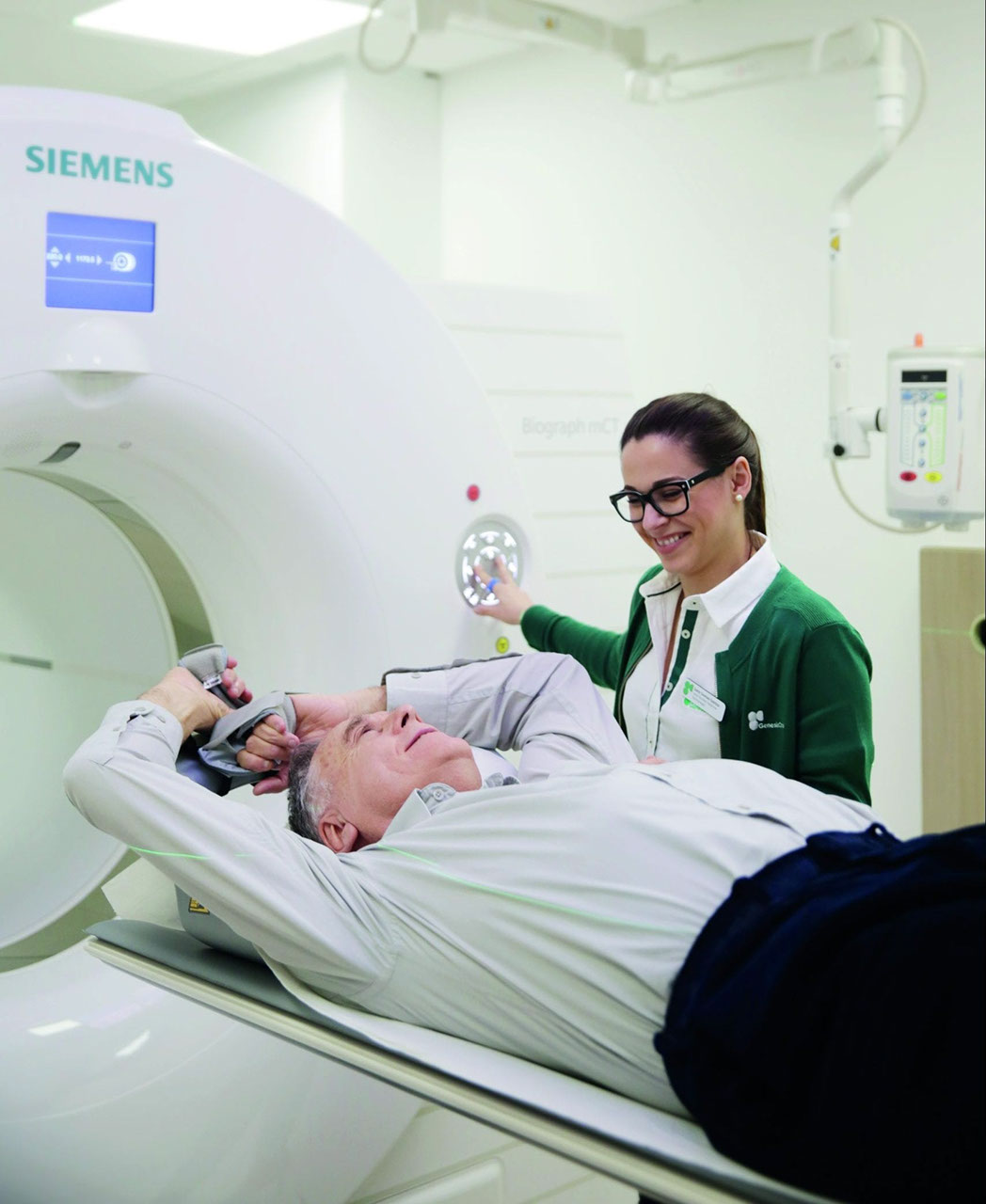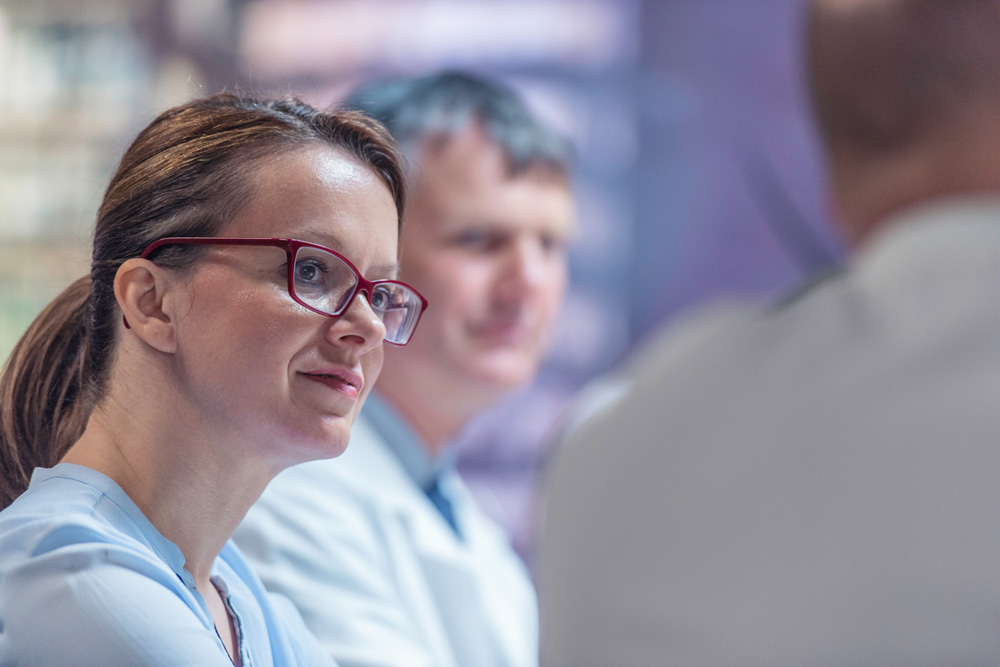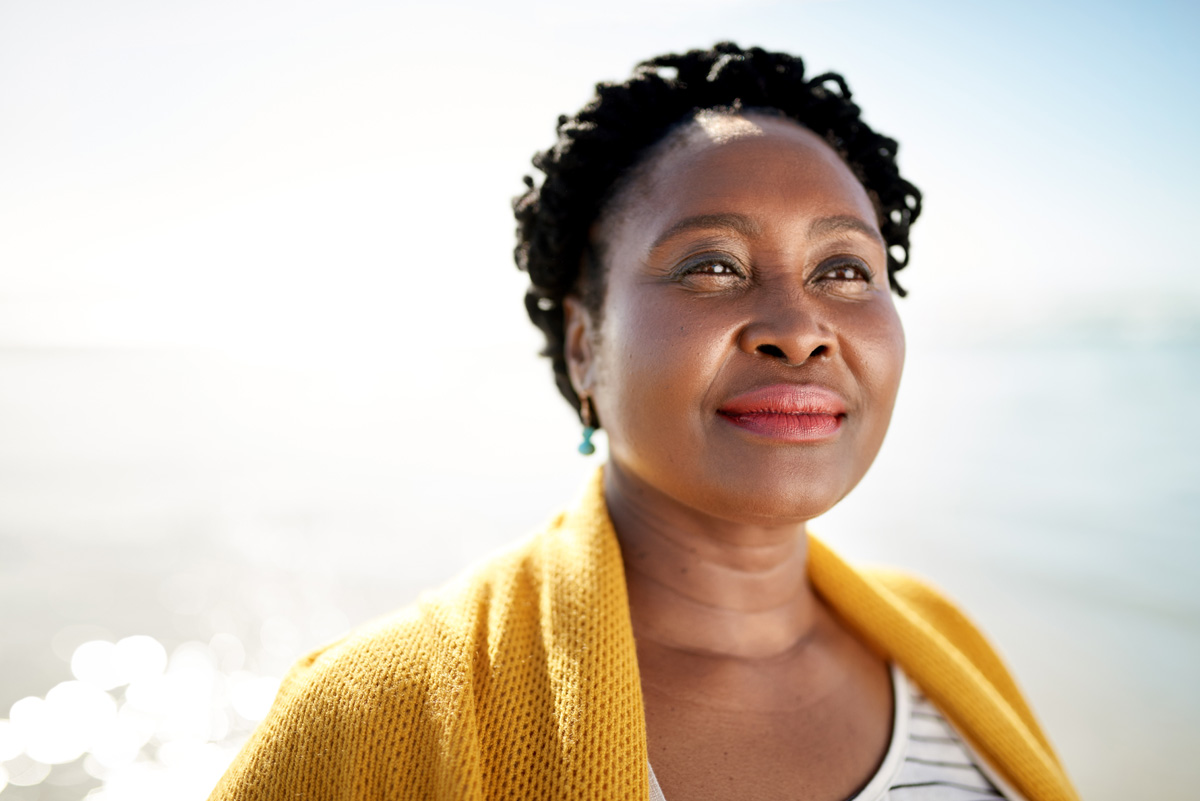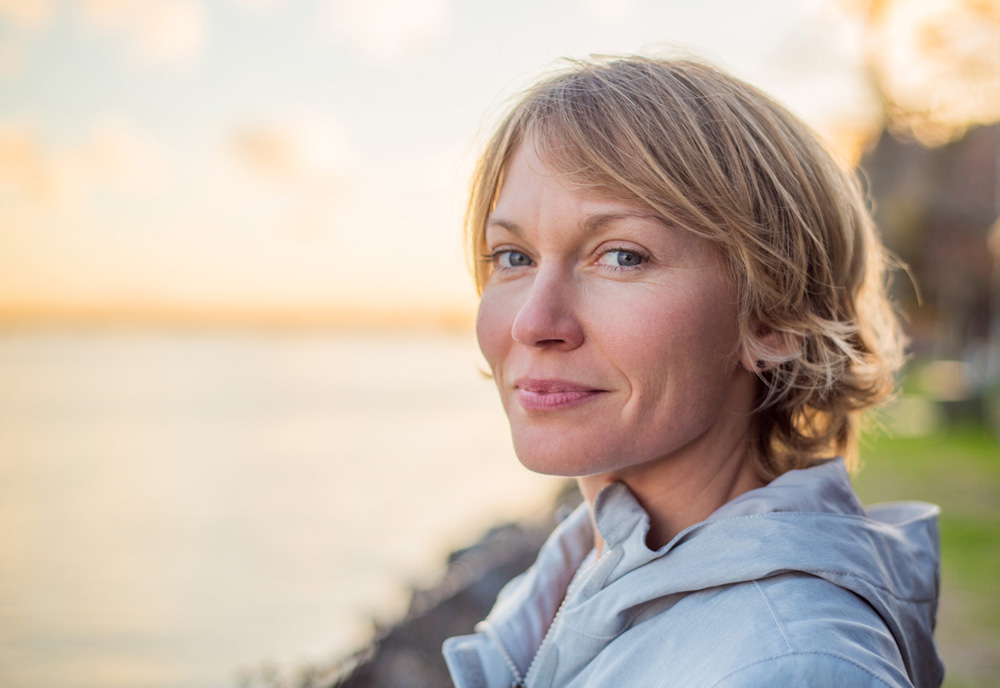- Patients
- Cancer diagnosis
- Imaging scans
- CT scanning

Private CT Scanning
Precision planning and personalised care to help you through your cancer journey
What is a CT scan?
A CT (computed tomography) scan is a technique that uses X-ray radiation to take a series of X-rays from different angles around your body. A computer analyses the images and combines the data to create a detailed 3D picture of the inside of your body.
In some cases, you may require a CT scan with a contrast medium. This will be administered during your scan to help enhance the quality of the images. This is usually given intravenously through a plastic tube (cannula) in the back of the hand, but it may be swallowed in the form of a drink.
When would we use a CT scan?
CT scans are mainly used during different stages of your cancer journey, including diagnosis and treatment. You may be recommended a CT scan so we can:
- Diagnose cancer
- See where the cancer is, how close it is to nearby organs and how big the tumour is
- Plan additional tests or determine treatment – you may have a CT scan before radiotherapy or as part of a biopsy
- See how effective treatment has been – you may have a CT scan before and after cancer treatment to compare the size of the tumours
A CT scan can also be used for other conditions not linked to cancer. You may be referred for a CT urogram if you attend one of our UrologyHub clinics to examine your kidneys, bladder and ureter to help diagnose conditions such as kidney stones, bladder stones and UTIs.
How much does a private CT scan cost?
The cost of a CT scan starts from £500, the total cost will depend on how much of your body needs to be scanned. This is because imaging larger areas or multiple parts of your body require several scans to be taken by a highly trained radiographer. One of our expert doctors will then assess each scan carefully before providing you with your results
We're recognised by all major private medical insurers and also offer a range of self payment options.
If you have a referral for a CT scan, find your nearest centre to book an appointment or make an enquiry. Find out more about payment options here
Why do I need a CT scan?
A CT scan wouldn’t normally be used as a screening procedure and you’re unlikely to be recommended one unless you have some symptoms.
Common cancer symptoms include:
- A lump
- Coughing, chest pain and breathlessness
- Changes in bleeding – including bleeding when you cough or in your vomit
- Changes in bowel habits – such as blood in your stools, diarrhoea, constipation, and stomach pains
- A general feeling of poor health – including loss of appetite, fatigue, nausea, vomiting or weight loss
Urological symptoms which may require investigation with a CT Urogram can include:
- Pain during urination
- Pain in your side or back
- Loss of bladder control
- Blood in your urine
CT scanning for radiotherapy planning
At GenesisCare, we also use CT scans to help plan and deliver accurate radiotherapy, including volumetric modulated arc therapy (VMAT), stereotactic ablative radiotherapy (SABR) and radiotherapy delivered on the MRIdian MR linac.
If you’re having radiotherapy, you’ll have a planning appointment a week or so before your treatment begins. You might have an MRI scan too. Your consultant will work with our dosimetrists, physicists, and radiographers to create a radiotherapy treatment plan that is specific to you. They’ll work out the exact dose of radiotherapy you’ll need at each treatment and determine the precise area to target.
Then at each treatment session you’ll have a cone beam CT scan on the treatment bed, before your radiotherapy begins. This is so your radiographers can make sure you’re in the same position as your original planning scan, so the radiotherapy is precisely targeting your tumour. This is called image-guided radiotherapy and is available at GenesisCare for radiotherapy treatment as standard.
What happens at a CT scan?
If you’re having a CT scan of your abdomen or pelvis, you may be asked to fast before your appointment. You’ll find this information in your appointment letter and your consultant will talk this through with you in more detail.
For most scans, you’ll be able to wear your own clothes, but you should avoid wearing items with metal fasteners as they may affect the scan images. Your radiographer may ask you to remove any jewellery and belts, or change into a patient gown. A private changing area and locker for your personal items is provided for your use during the scan.
Once you're ready to have your scan your radiographer will take you into the scanning room. They'll ask you to lie down on your back on the couch and help you into the correct position.
During your scan your radiographer may give you an injection of contrast medium (a special dye) to improve the quality of your CT scan. This will either be an injection into a vein on the back of your hand or swallowed as a drink. It may make you feel hot, produce a metallic taste in your mouth or feel like you’re urinating when you aren’t. These effects are normal and pass quickly.
Your radiographer will leave the room but they’ll be able to see you on a screen for the duration of the scan. You’ll be able to talk to one another through an intercom system and they may give you some specific breathing instructions during the scan to help improve the quality of the images.
The couch will slowly move backwards and forwards through the hole of the scanner. The machine looks like a big ring and takes pictures as you move through.
Depending on which area you are having scanned, you may be in the room for 20 to 30 minutes. The scan won’t cause you any pain, the hardest part is staying still but we’ll make sure you’re as comfortable as possible before the scan begins. Once your scan has finished, your radiographer will come back in the room and help you off the couch.
You shouldn’t experience any side-effects from your CT scan and you’ll be able to eat and drink as normal afterwards.
If you had your CT scan with contrast, your radiographer will ask you to stay for 15 minutes to ensure you don't experience any side effects. The contrast is normally harmless and will pass out of your body in your urine.
We’ll send your results, usually within 48 hours, to your doctor who requested the scan. They’ll then contact you to explain the results and discuss the next steps.
Should I be worried about radiation from a CT scan?
A CT scan is a low risk procedure and the amount of radiation you’ll receive from it is equivalent to about five years of naturally occurring (‘background’) radiation. The decision to perform a CT scan is always made by a qualified member of our team who ensures that the radiation exposure is justified.
Your CT scan will provide us with important information and it’s considered that the benefit for you is much greater than the risk from radiation. If you have any concerns or want some more information about the risks of a CT scan, you can speak to your radiographer or visit:
https://www.gov.uk/government/publications/ionising-radiationfrom-medical-imaging-examinations-safety-advice
If you’re breast-feeding, pregnant, or know there is chance that you might be, please inform the department where you’ll be having your CT scan ahead of your appointment.
FAQs
CT scans are very useful in the diagnosis and monitoring of cancer tumours. They can provide accurate details on internal organs, bones and blood vessels and help consultants identify the size, shape, or location of a potential tumour.
CT scans are usually the first choice when having an imaging test. However, some tissue and parts of the body are harder to see for CT scans. In these instances, we would then use an MRI scan.
CT scans can show detailed images of inside your body, including internal organs, blood vessels and your bones. They can also show damage or injuries to your bones or internal organs.
When you have a CT scan, a series of X-rays are taken at different angles around the area being scanned. A computer then combines these images to create a more detailed 3D image than a traditional X-ray.
CT scans are used for several reasons. You can use a CT scan to help diagnose conditions, including cancer. You can also use a CT scan to guide treatment, monitor treatment, and visualise disease progression.
Read next

Doctors
Our doctors
GenesisCare works with many leading and experienced cancer doctors who share our commitment to providing excellent patient care

Centres
Our centres
With 440 centres across the world, we're continuing to diagnose and treat without delay, bringing specialist care closer to our patients in the UK, Spain, Australia and the US.

Cancer care
Exploring cancer care
We are the UK’s leading private provider of advanced radiotherapy and cancer care. We offer fast access to the latest technology and treatments that has been proven to make a difference.

Cancer care
How can we help?
Accessing world-class cancer care is easier than you think. Follow these easy steps to get treatment, tests and scans, or a second opinion at GenesisCare, and find out the different ways of funding your cancer care.

Patient support
Patient stories
We believe patients can be our teachers and trusted advisers, benefiting from their unique experiences.
Book an appointment
If you’re worried about symptoms or would like a second opinion, enquire now for more information and to book an appointment.